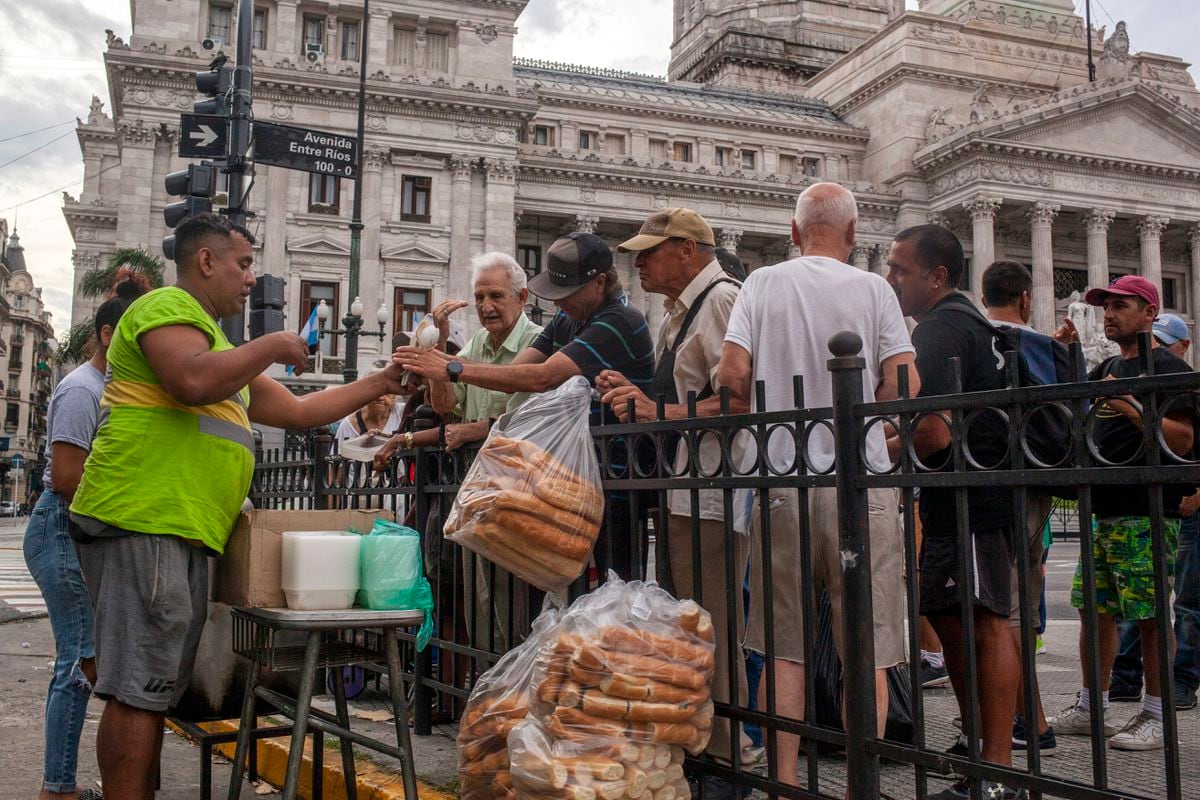Trash cans smoke, bicycles and broken glass dominate the landscape, there are Ethiopian restaurants, basements where new Slovenian cinema is being screened, Japanese tourists and lakes to anticipate summer, and the new novel by Alan Pauls (Buenos Aires , 1959) ends in one of the latter together with the approaches to the elusive Carla that Savoy, its protagonist, rehearses during his first and last week in the city.
The Berlin of
The Phantom Half
It is Moabit, the Sony Center and Lake Schlachtensee, but there are many other cities that respond to that name; for example, the one that certain literature in Spanish has been turning for some time into a surface for projection of fantasies and desires of foreigners, urbanity, confrontation with “what is European” and closure of the migratory experiences of their own and others that perhaps disconcert its inhabitants, to which Berlin is some other things, not all confessable.
Pauls' new novel is the product of the year of hospitality (and "spoiling," he says) its author spent in the German capital thanks to the art residency program of the German Academic Exchange Service (DAAD), but is dominated by an inadequacy that is evident, for example, in the snow shoes with which its protagonist travels an almost summery Berlin: they are, like Savoy, out of place in “a world of unknown rules, uses and customs ”Similar to the one that the Costa Rican Luis Chaves (San José, 1969) narrates in
Let's Touch the Water
, a light but not exempt chronicle of significant and powerful moments of the period that the author and his family spent there, in 2015. “I hated myself, I hated my wife because she was the closest thing, but I also hated, and above all, to Germany, its rules and its citizens genetically unable to make exceptions, I come from the culture of disregarding the laws ”, he writes; It was the first time that their daughters got on a plane and the first time that the family traveled outside the country in the direction of what for Chaves was going to be mainly the neighborhood of Friedenau, Iggy Pop and David Bowie, Kommune 1 and Rosa Luxembourg, a city in which the cold, the language and a certain German rigidity would remind you that every family is primarily a refuge.
Fabio Morábito shows his perplexity at not being able to know if the city has a river: there is no way to orient oneself
Berlin is also forgotten
, by
the Mexican Fabio Morábito (Alejandría, 1955), follows a similar orientation and is the product of similar circumstances (in 1998): it begins with the perplexity of not being able to determine whether the city has a river or not.
"A river marks a natural border in the consciousness of the inhabitants of a city and generates in them a sixth sense that allows them to face the river from wherever they are," he writes.
There is no way to orient yourself in Berlin, the waters of the Spree do not flow in any recognizable direction, the city has two centers and is riddled with gaps ... But the elevated subway offers a theater of intimacy, the
Schrebergärten
or urban gardens are "representations of the Dream House" and the city is young. “Like teenagers […] Berlin transmits a mixed sensation of desolation and strength, rudeness and fragility […] it gives the impression of continually starting over”.
Diario pinchado
,
by Mercedes Halfon (Buenos Aires, 1980), is, on the contrary, fiction. The visit of the narrator to her partner, who has been living in Berlin for a few months thanks to an (another) artistic residency, becomes a realization that “much more difficult than distance is closeness”. Halfon's Berlin is Mitte's, the Jewish cemetery on the Grosse Hamburger Strasse, the Treptower Park, the Volksbühne, the Grunewald forest, Walter Benjamin, the synecdoche of the “intense tourist” (“Any German is the Germans. Any sausage it's the sausages. Any immigrant is the immigrants. Any corner is Berlin "), the disorientation and finding, finally, a direction.
None of these authors makes Berlin a place where the German totalitarian past and its imitations in Latin America converge
None of the four authors is inclined to make Berlin the place where the German totalitarian past and its imitations in Latin America converge; but, as Graciela Wamba writes, the commitment to this confluence is, totally or partially, behind many books, among them
The Eighth Wonder,
by Vlady Kociancich (1982);
Hotel Eden,
by Luis Gusmán (1998);
Rainer and Minou,
by Osvaldo Bayer (2001);
The grandmother,
by Ariel Magnus (2007);
Änderungsschneiderei Los Milagros
(Sastrería Los Milagros), by María Cecilia Barbetta (2008);
Far from Berlin,
by Juan Terranova (2009);
Far from where
,
by Edgardo Cozarinsky (2009);
German Autumn,
by Liliana Villanueva (2019), or
Saying Berlin, Saying Buenos Aires
,
by Saúl Sosnowski (2020).
In the latter, the photographs, mirrors and walls alternate in the memory of its protagonist establishing an identity between both cities, through which, incidentally, the characters from Sosnowski's second novel (1945),
El País that they now called their own
,
the story of their father, who emigrated from Poland to Buenos Aires; that of his brother, who returned to Warsaw, and that of the narrator's son, who was born in Buenos Aires and reconstructs a history of exiles and losses, of objects that speak of the people who have used them and the tragic circumstances that time must have gone through. that break the distance between two languages, Yiddish and Spanish, which are the only “forever country” that its characters have reached.
While Washington Cucurto moves to Berlin his Rabelesian project of liberation of the oppressed in 'The neo-Nazi army of love' (in
El curandero del amor
, 2006), Ariel Magnus proposes in
Muñecas
(2008) a sentimental story whose secret protagonist is the city that the characters travel through: they are the most deliberately comic novels of the series, but, like others that present what Wamba calls "the German as the other", to read them is to verify that "the linearity of the trip from Buenos Aires to Berlin and vice versa ”is only apparent: we continue to tour the German capital in summer with snow shoes, and this is great news for readers.
Recommended reading
The Ghost Half
Alan Pauls
Literature Random House, 2021
320 pages.
18.90 euros
Let's touch the water
Luis Chaves
Los Tres Editores, 2017 and 2021
102 pages.
10.58 euros
Berlin also forgets
Fabio Morábito
Sexto Piso, 2015
100 pages.
14.90 euros
Punctured diary
Mercedes Halfon
Las Afueras, 2021
128 pages.
15.95 euros
The country that they now called theirs
Saúl Sosnowski
Paradiso Ediciones, 2021
128 pages.
No price references
You can follow BABELIA on
and
, or sign up here to receive
our weekly newsletter
.
Sign in to continue reading
Just by having an account you can read this article, it's free
Sign upLogin
Thanks for reading EL PAÍS

/cloudfront-eu-central-1.images.arcpublishing.com/prisa/JSDPDRSVCZBX5EVEYHM467FRYM.jpg)



/cloudfront-eu-central-1.images.arcpublishing.com/prisa/W33JSXVPKRF7FMDYEETPSPNNKY.jpg)









